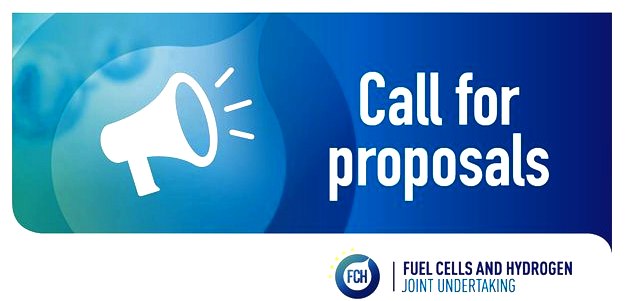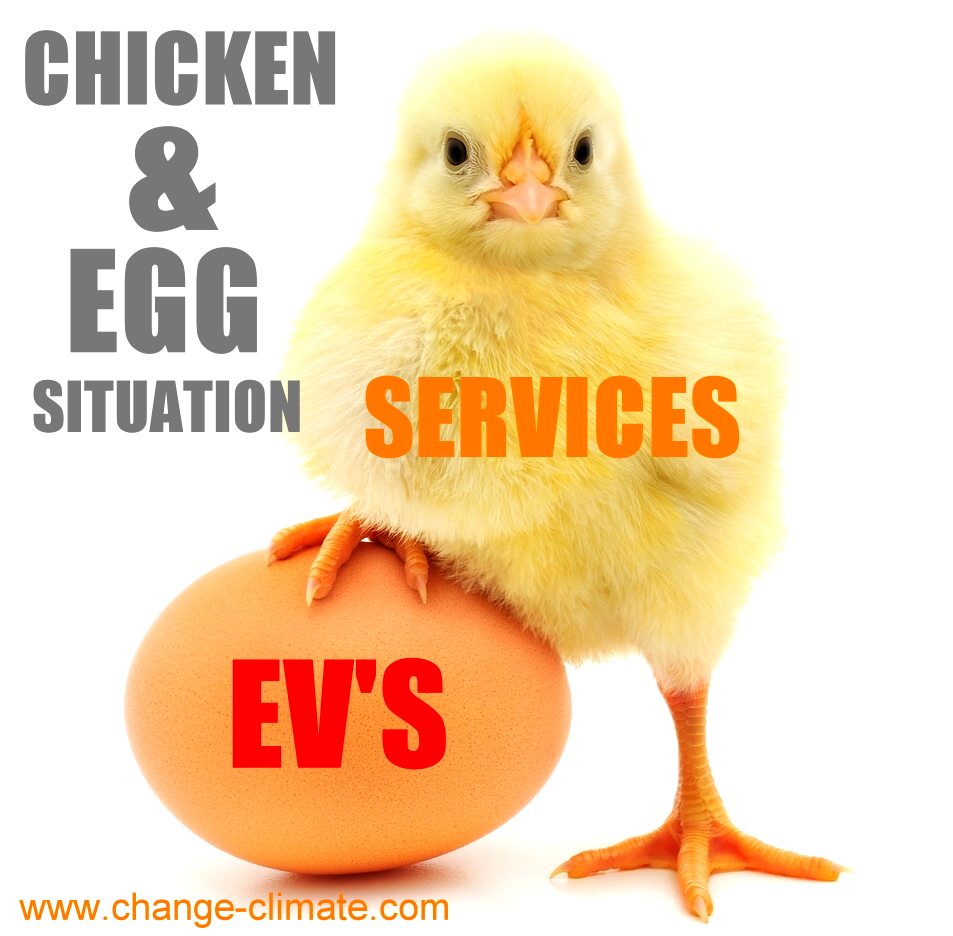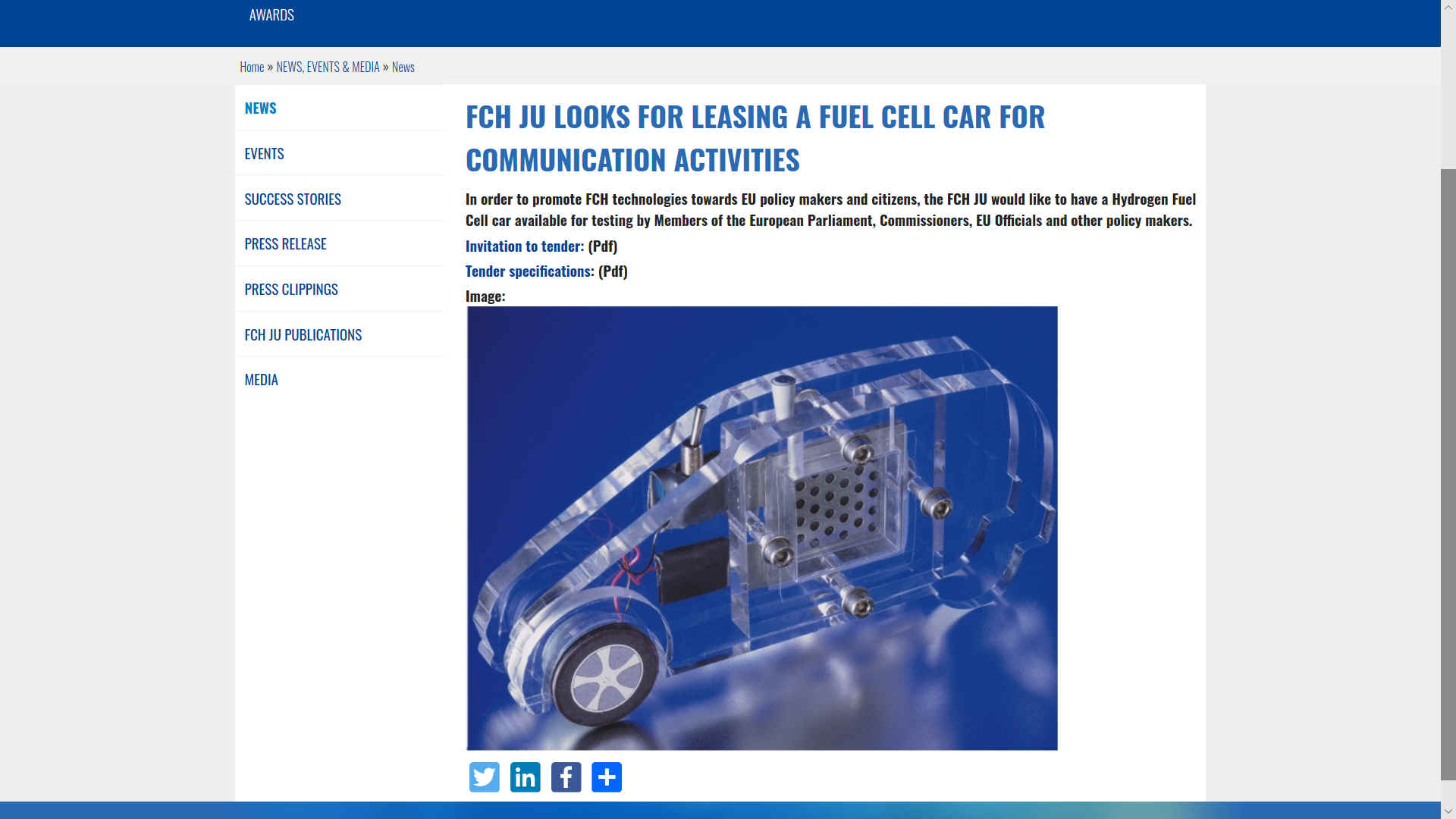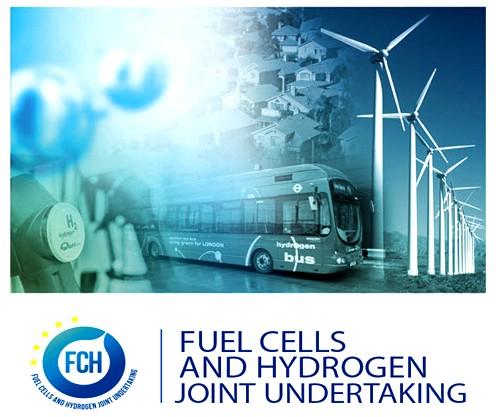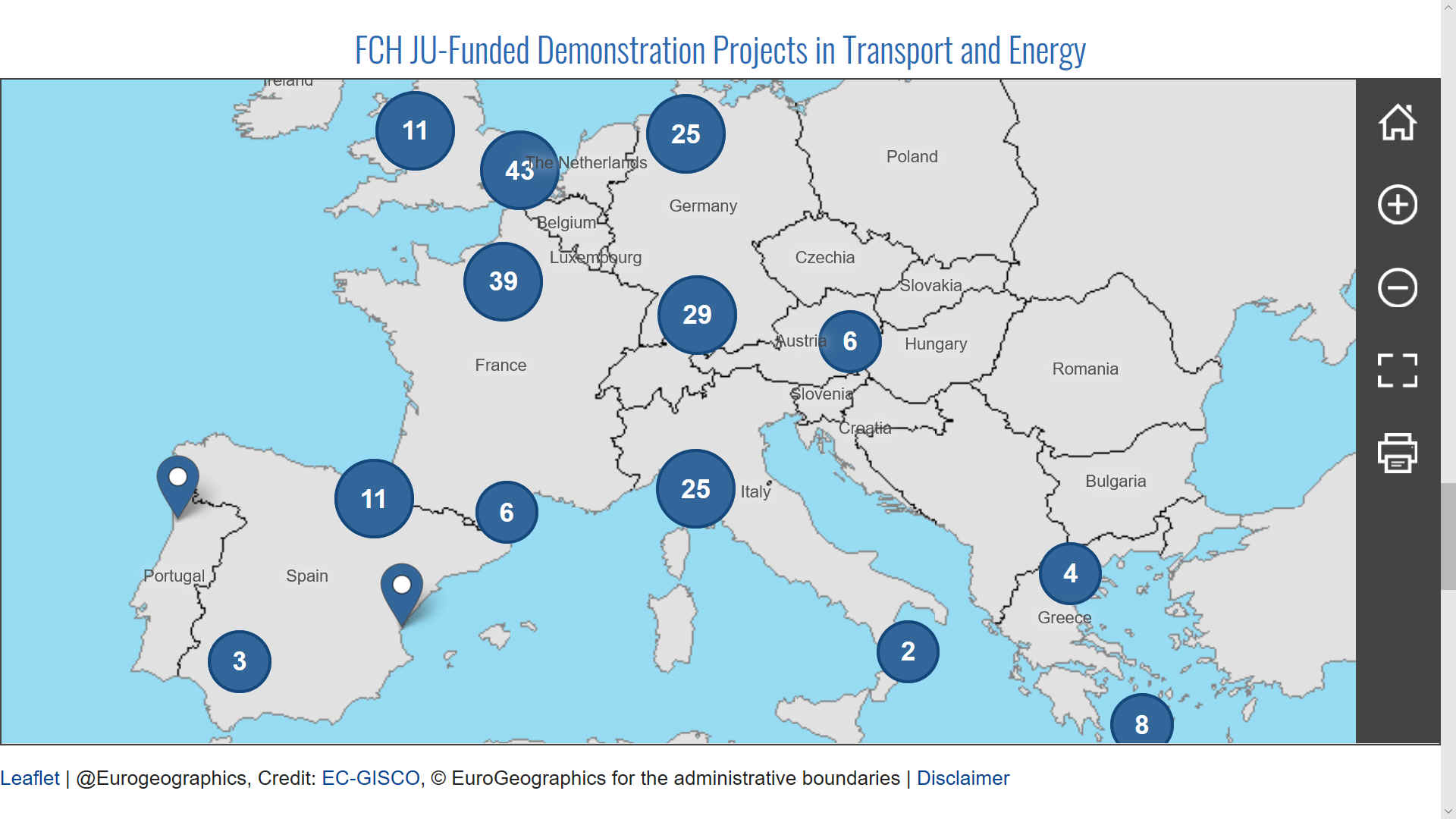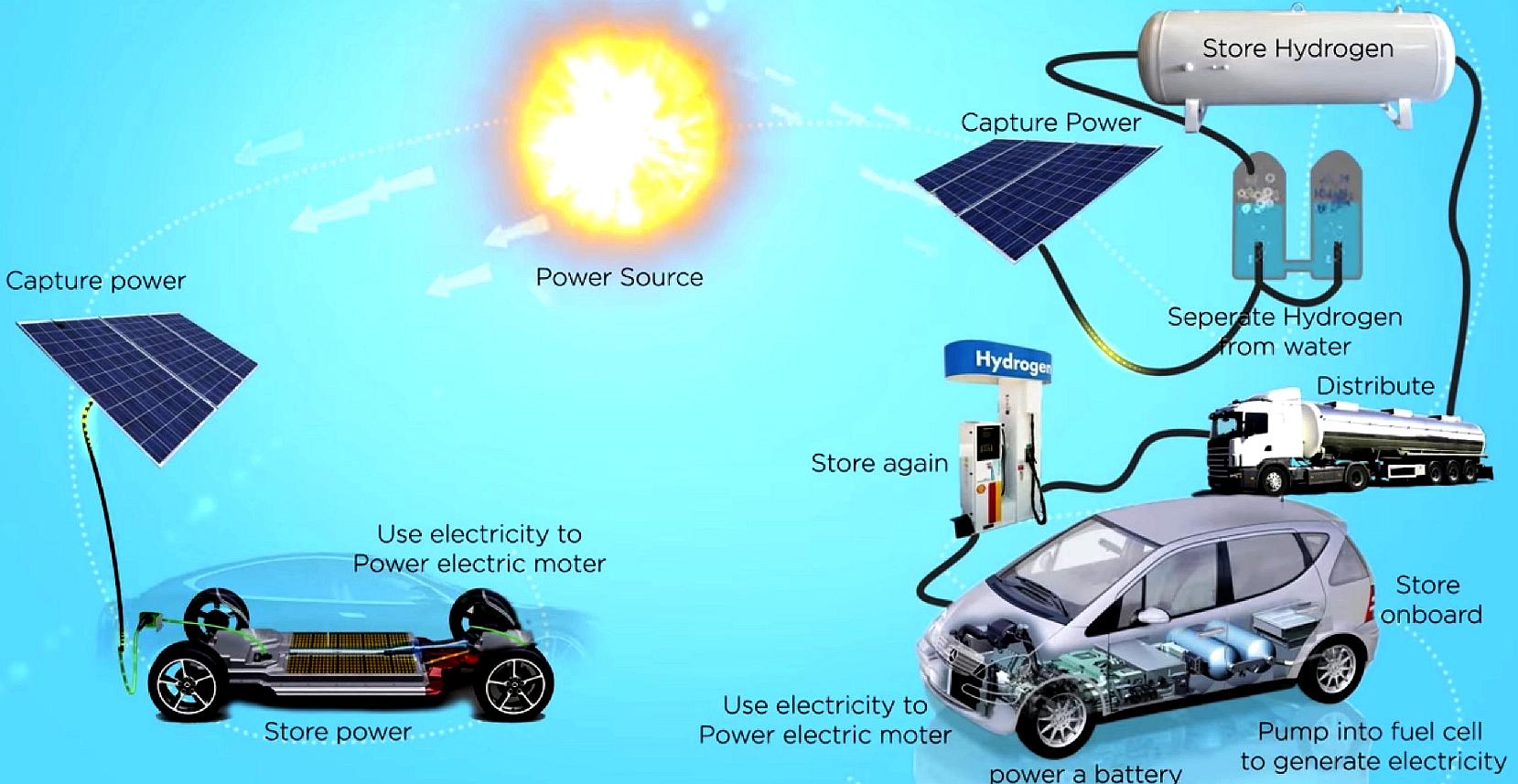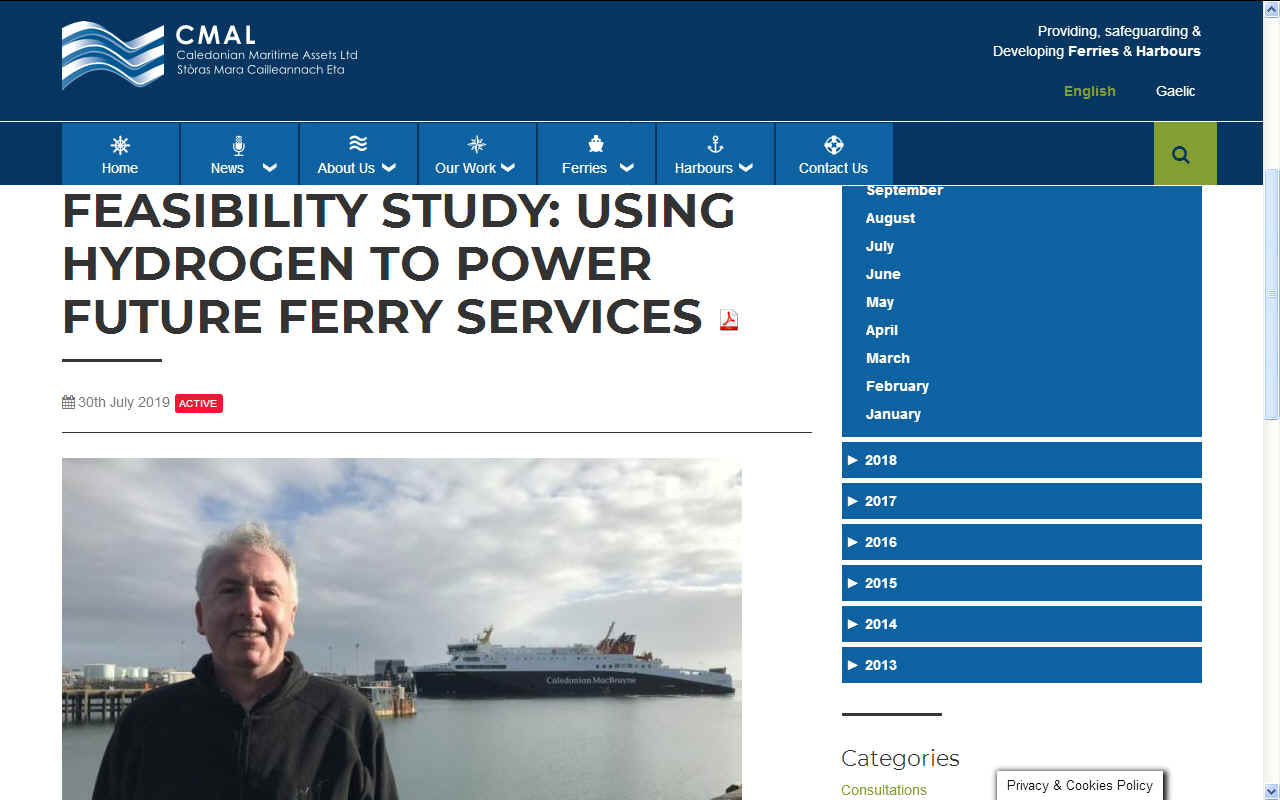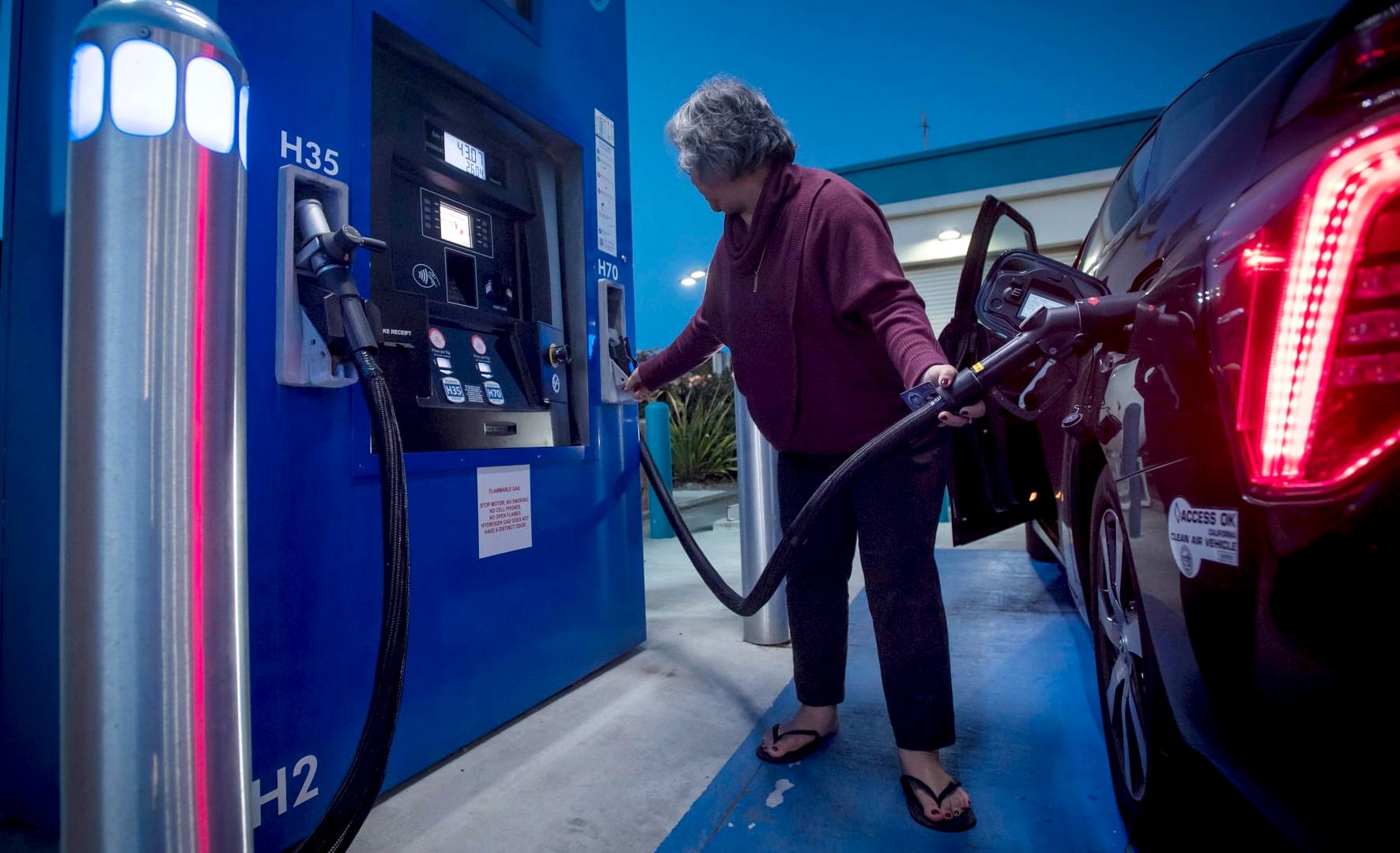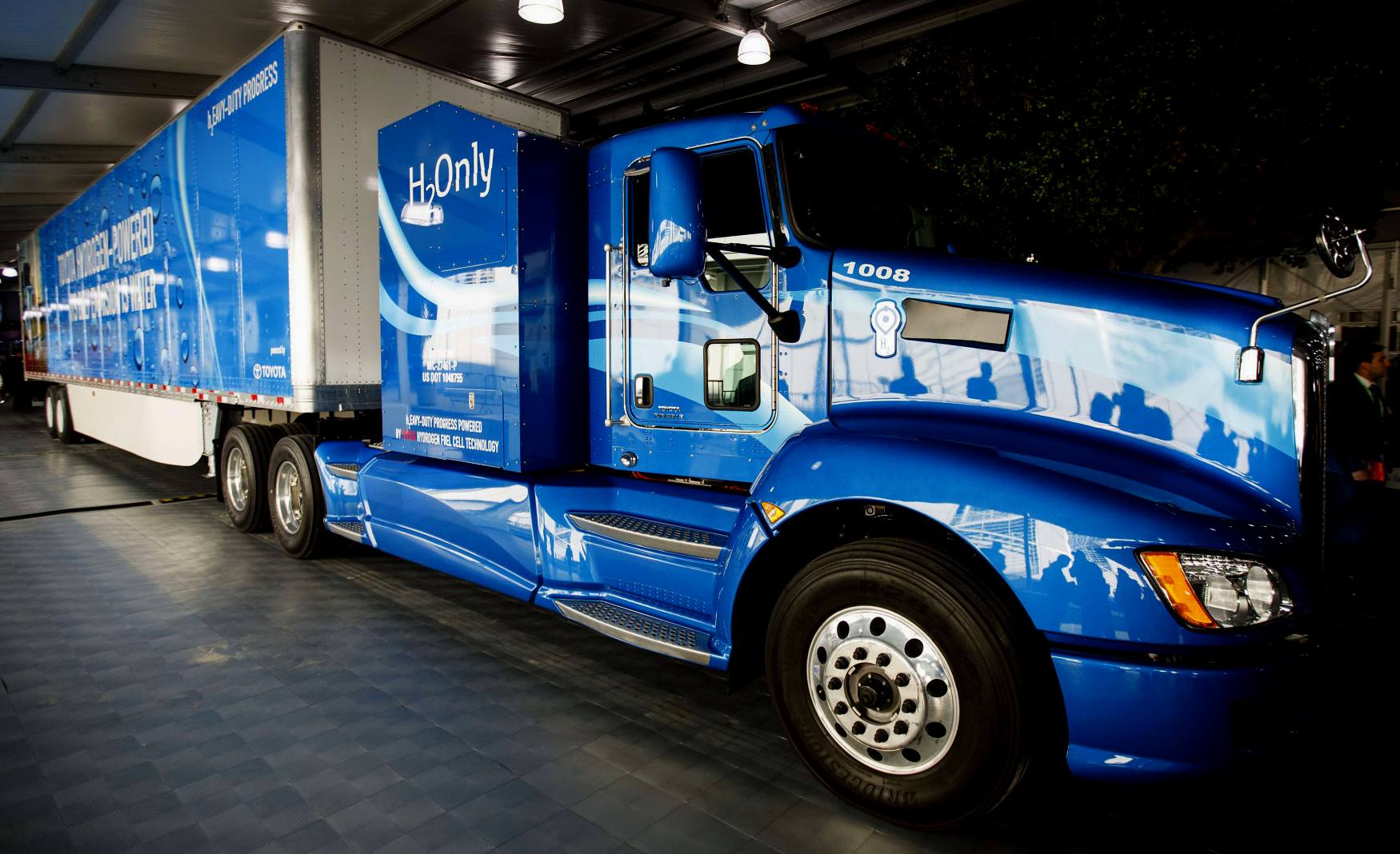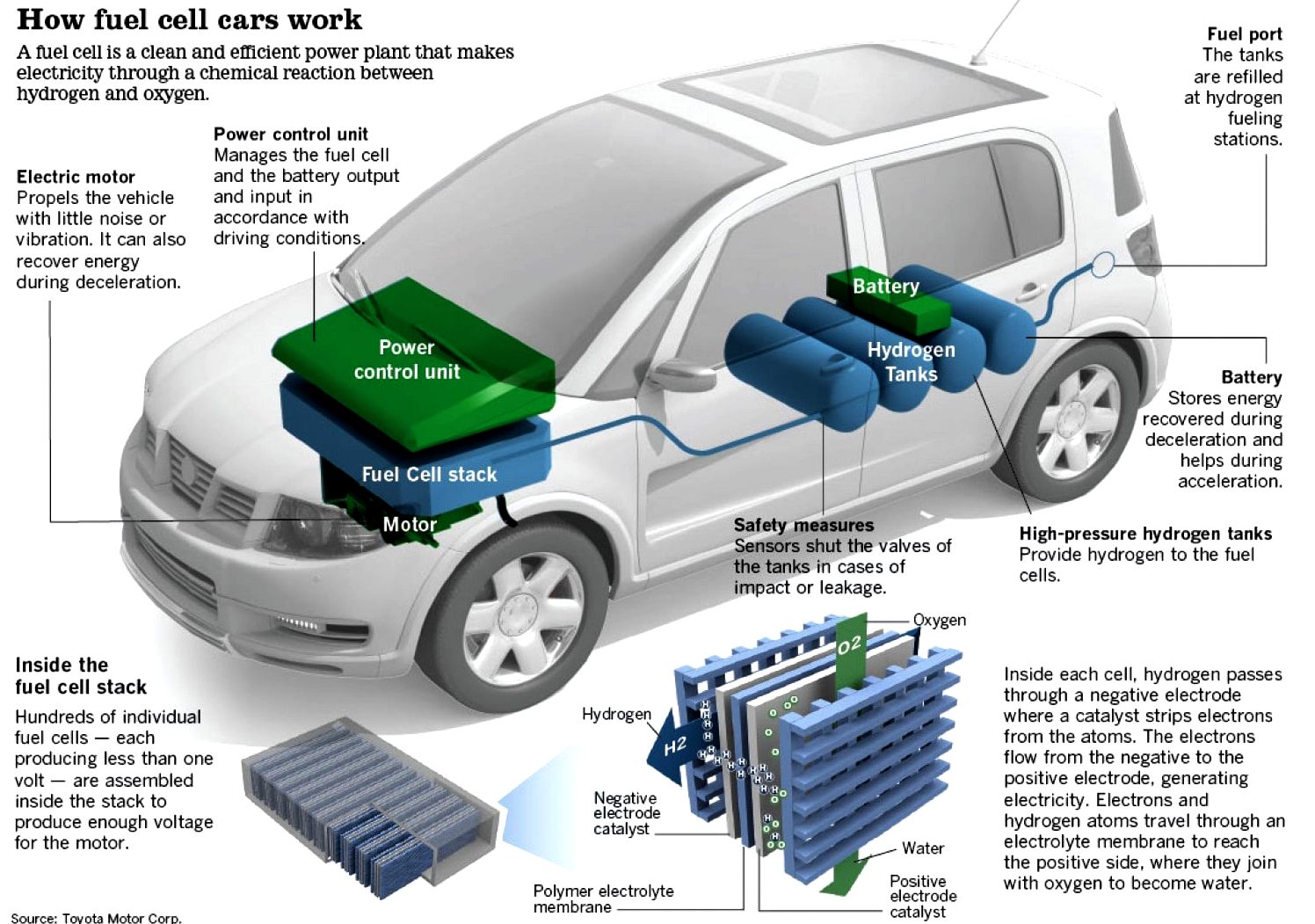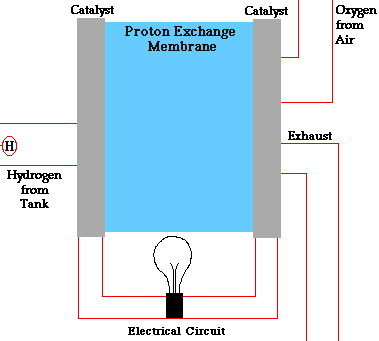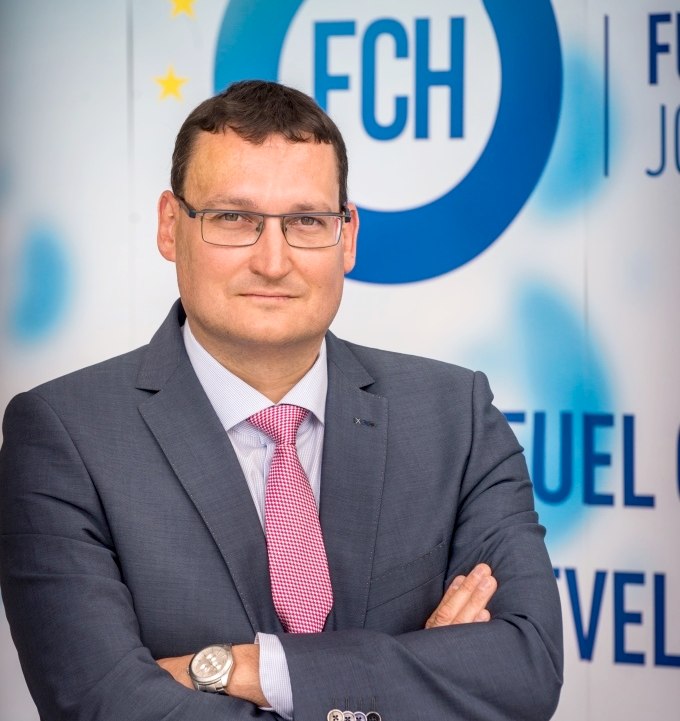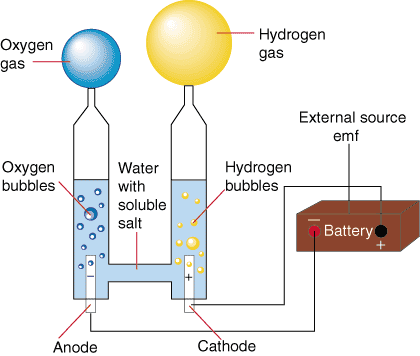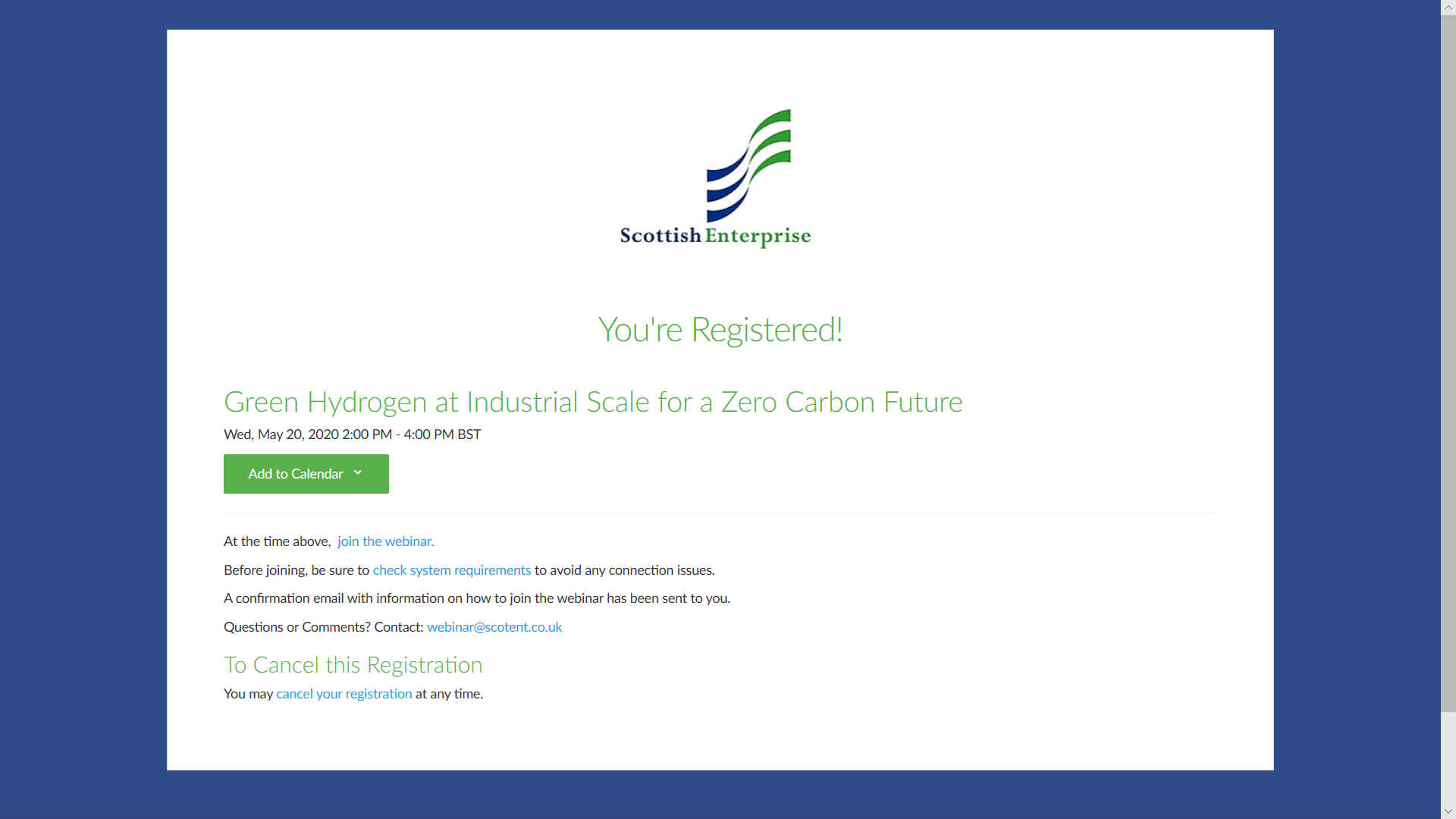|
FCH JOINT UNDERTAKING
Please use our A-Z INDEX to navigate this site where page links may lead to other sites, or go HOME
|
||
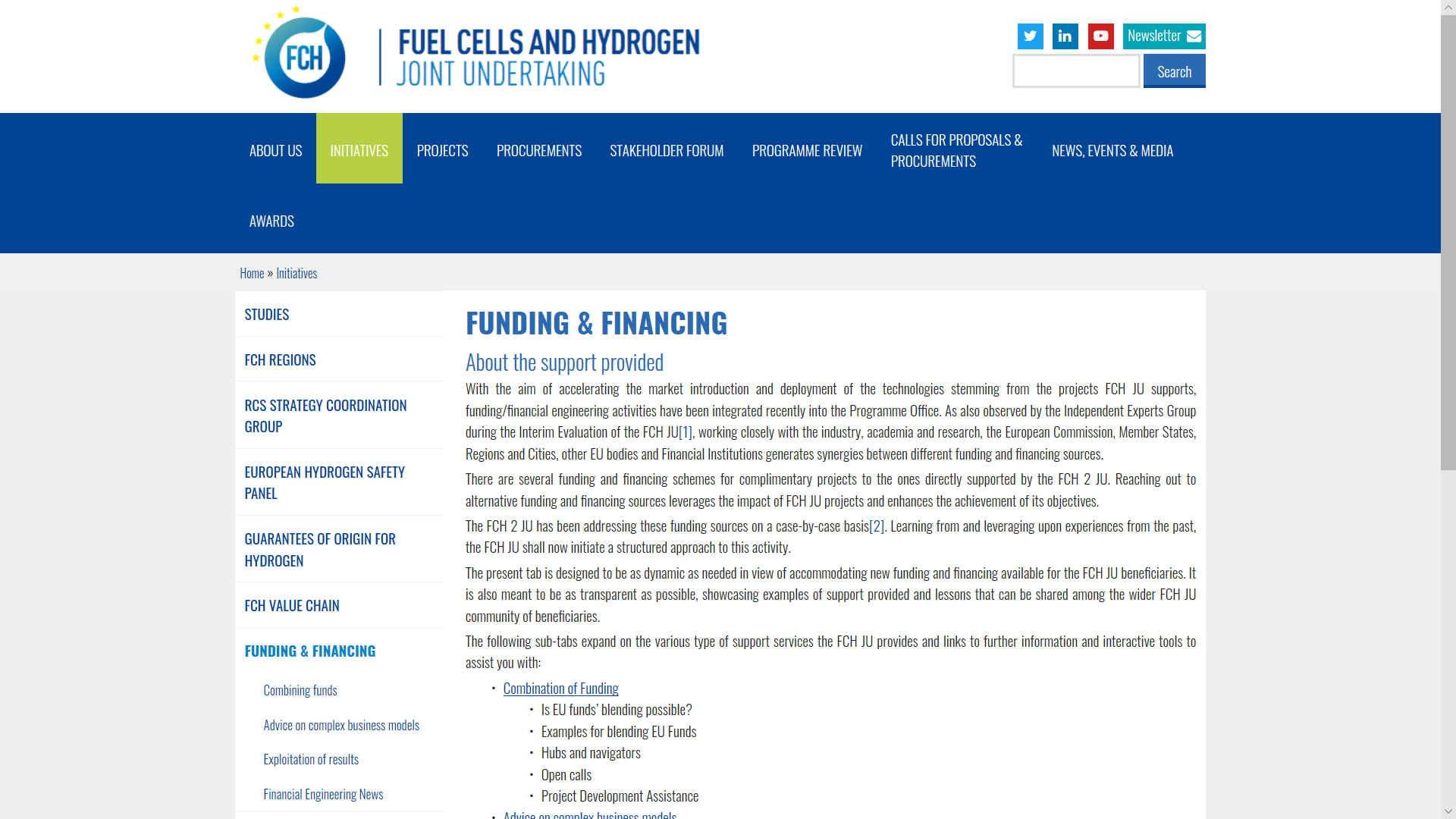
FCH JU - The Fuel Cells and Hydrogen Joint Undertaking (FCH JU) is a unique public private partnership supporting research, technological development and demonstration (RTD) activities in fuel cell and hydrogen energy technologies in Europe. Its aim is to accelerate the market introduction of these technologies, realising their potential as an instrument in achieving a carbon-clean energy system.
Fuel cells, as an efficient conversion technology, and hydrogen, as a clean energy carrier, have a great potential to help fight carbon dioxide emissions, to reduce dependence on hydrocarbons and to contribute to economic growth. The objective of the FCH JU is to bring these benefits to Europeans through a concentrated effort from all sectors.
The three members of the FCH JU are the European Commission, fuel cell and hydrogen industries represented by Hydrogen Europe and the research community represented by Hydrogen Europe Research.
FUEL CELLS and HYDROGEN JOINT UNDERTAKING ( FCH JU) CALL FOR PROPOSALS
The call is open from 14 January 2020 until 29 April 2020 17:00:00
CET.
REGULATIONS, CODES & STANDARDS (RCS) Strategy Coordination Group
The implementation of a Regulations, Codes and Standards Strategy Coordination (RCS SC) is crucial for the market deployment of FCH systems. Today, the lack of harmonized RCS and PNR to fill RCS knowledge gaps at EU (and world) level is still recognised as a major barrier for the commercialization of FCH products.
Activities on Regulations, Codes and Standards (RCS) target the development as well as the actual use of harmonised performance-based standards for FCH appliances and systems, together with their safety in energy and transport applications that can:
(a) facilitate access to the market and (b) can serve as mandatory references in regulatory documents at EU level.
The FCH 2 JU Strategy on RCS therefore aims at deploying the activities needed to enable meeting the interests of the European FCH-community in:
- Developing science-based, fit-for-purpose European and international standards that promote and enable market deployment by providing the technical requirements to achieve safety and build public confidence.
- Establishing compliance/certification criteria within the EC and UN regulatory framework.
- Guiding authorities and other stakeholders in the application of RCS.
To enable coordinated implementation of the above tasks, an industry-led Regulations, Codes and Standards Strategy Coordination Group (RCS SCG) was created in 2015, composed of representatives of Hydrogen Europe and Hydrogen Europe Research, assisted by JRC and with the support of the Programme Office.
The main activities of the RCS SCG are:
A. Identification of strategic themes for RCS development and proposed follow-up.
B. Tailoring of the consecutive FCH2JU Annual Work Plans to best address RCS needs.
C. Transfer and ensuring actual use of PNR results in RCS development.
D. Establishing an approach to enhance European participation and influence in European and international RCS fora, including inputs to Annual Union Work Plans for Standardisation.
In 2020, several calls for proposals were issued as FCH-01-1-2020 and FCH-01-3-2020, designed to close the gap between power density and integration with electric vehicle architecture and compressed gas versus liquid hydrogen. The calls were issued in January with an extended deadline to April 2020, due to Coranavirus delays.
These calls were not expressly to deal with hydrogen infrastructure, but they could be used as an introduction to a system that delivers compatibility and flexibility, by way of a mechanism to deliver hydrogen to the market more quickly.
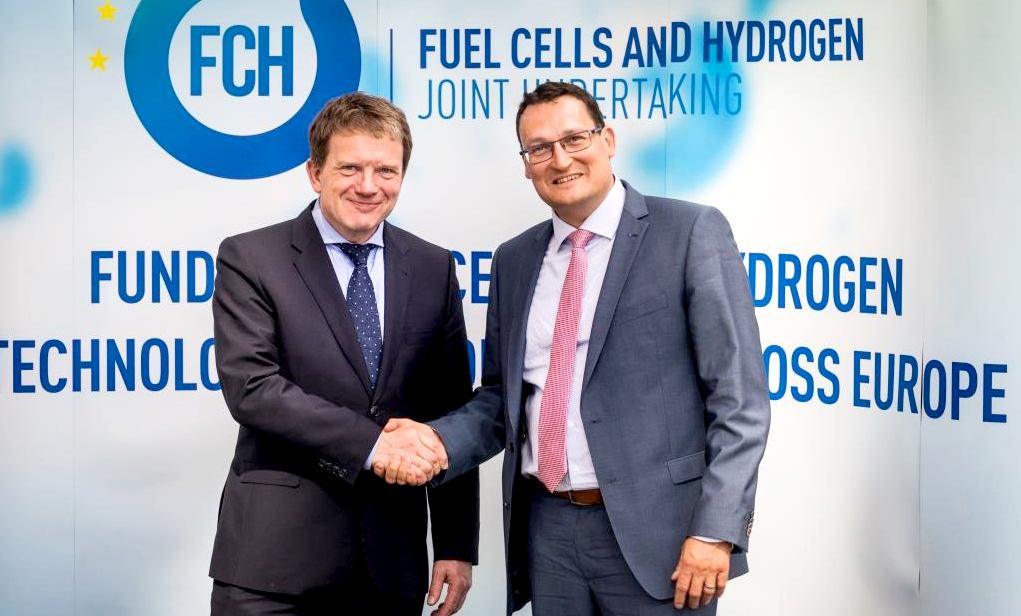
7 May 2016 - Bart Biebuyck took up his duties as new executive director of the FCH2 JU. The FCH2 JU welcomed its new director who brought on board a wide managerial and strategic experience, strengthened by a global perspective. Bart Biebuyck comes to the FCH2 JU from the Fuel Cell department of Toyota Motor Europe where he held the position of Technical Senior Manager. His expertise in the automotive industry includes extensive knowledge related to the deployment of new technologies in the European market. It is as part of the Clean Energy Partnership (CEP) programme in Berlin that Bart worked at reinforcing European trials for the Toyota Fuel Cell Hybrid Vehicle. He also had the opportunity to develop and expand his know-how in Japan, where for two years he worked on the PSA-Toyota Small Vehicle Development Project which resulted in the launch of the Toyota AYGO in 2006.
MEMBERS LIST
ITM Power
AUTOMOTIVE EV COMPARISON - This diagram relating to electric cars illustrates the additional complication, hence conversion inefficiencies, of going the hydrogen route. There is though an argument for using hydrogen despite these complications, in the event of battery shortages from materials exhaustion - as one example. ....
SCOTTISH FERRIES - Caledonian Maritime Assets Ltd (CMAL) is one of several industry partners to be involved in a feasibility study carried out by Point and Sandwick Trust. The study assesses the suitability of using hydrogen produced from local wind farms to power future ferry services operating in the Western Isles and West Coast of Scotland. The study was part-funded by the Scottish Government’s Low Carbon Infrastructure Transition Programme.
AUTOMOTIVE EV COMPARISON - Where charging up a battery-powered car can take anything from half an hour to a whole night, you can refuel a hydrogen car in just five minutes using flexible hoses. But, you can also refuel a battery car in less time using cartridge exchange. Meaning that hydrogen loses out, if we take into account conversion losses. For this reason hydrogen is unlikely to achieve the same level of market penetration, without a means to work alongside battery vehicles, such that the choice for the buying public is not such a risk, as if putting all your eggs in one basket.
HEAVY DUTY LONG HAUL - We'd all like to see clean electric rigs like this, and the hardware exists to make that side of the puzzle happen - although this is a battery powered wagon. What is needed to make zero carbon trucks more attractive is a flexible support infrastructure that can refuel an HGV as quickly and conveniently as an electric car, using hydrogen or batteries and the energy storage medium. This is possible using SMARTNET technology. ...
EUREKA - Hydrogen is the most abundant element in the universe. With the "green-energy" craze and talk of powering our future oil-free economy on hydrogen, it has received much attention in the last few decades. Learning about this potential fuel of the future is important and interesting, but not without snags, and these are for anyone to seek to overcome.
....
ANIMATION
- A fuel cell converts the chemicals
hydrogen and oxygen into water, and in the process it produces
electricity.
ABOUT BART - Bart Biebuyck graduated in 1998 from the Hogeschool van Arnhem en Nijmegen (HAN) in the Netherlands with a bachelor’s degree in “Automotive Engineering”. He joined Toyota Motor Europe in January 1999, starting in the Powertrain Group where he worked on improving the Easydrive Transmissions for Europe.
In 2003 he went on assignment to Toyota Motor Corporation in Japan where he joined the PSA-Toyota Small Vehicle Development Project which resulted in the launch of the Toyota AYGO in 2006. After a two year spell in Japan, he returned to Toyota’s European headquarters in Brussels and was appointed Project Leader for the first automatic transmission in a diesel passenger car designed for the European market. The first car to feature this transmission was the 2008 Avensis, followed by the RAV4 and Verso.
In 2007 he became Manager of the Easydrive Transmissions applications team for the European market where he was responsible for the Plug-in Hybrid Vehicle (PHV) trials in Europe. Further building on his expertise in this field, he started supporting the European trials for the Toyota FCHV-adv (Fuel Cell Hybrid Vehicle) in 2010 as part of the CEP (Clean Energy Partnership) programme in Berlin.
In 2011 he was promoted to the role of Senior Manager for the department responsible for various transmission applications for conventional and hybrid vehicles for the European market. In this function he supervised the technical aspects of introducing new technologies such as PHV, FCHV and EV (electric vehicles) in the European market.
In 2012 the drivetrain design department was added to his responsibilities. In 2013 he became Technical Senior Manager, focussing on the Fuel Cell Vehicle development and market introduction.
CONTACTS
FUEL CELLS AND HYDROGEN JOINT UNDERTAKING
A-Z
INDEX OF H2 POWERED FUEL CELL SHIPS
LINKS & REFERENCES
https://www.fch.europa.eu/news/fch-ju-looks-leasing-fuel-cell-car-communication-activities https://www.fch.europa.eu/page/call-2020
Please use our A-Z INDEX to navigate this site
AMMONIA - COMPRESSED GAS - ECONOMY - FUEL CELLS - FUSION - HYDRIDES - LIQUID GAS - METHANOL
|
||
|
This website is provided on a free basis as a public information service. copyright © Climate Change Trust 2022. Solar Studios, BN271RF, United Kingdom.
|
